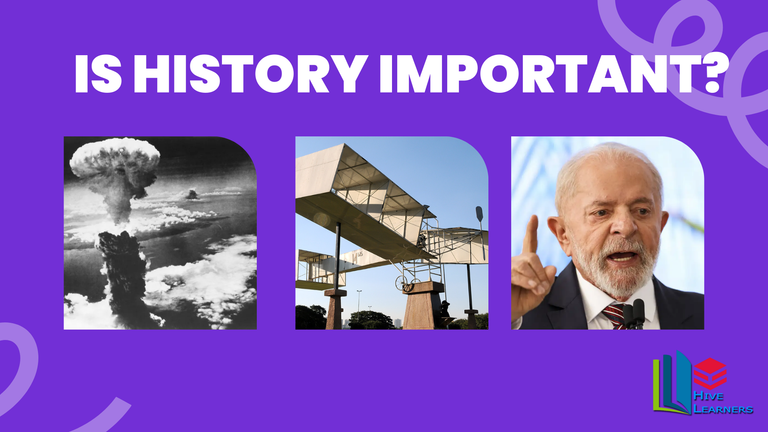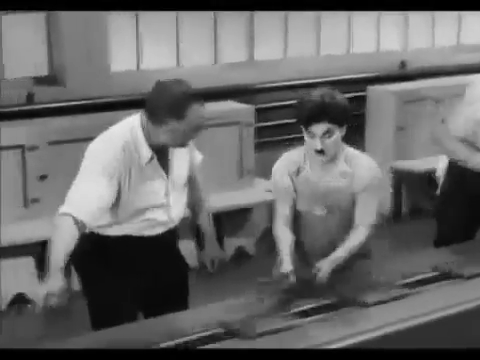
Understanding the past and learning from the mistakes of our ancestors is fundamental, as this prevents today's society from repeating the same mistakes. That's why, in many countries, the subject of history is part of the school curriculum, allowing new generations to learn from an early age about past events, both in their own country and in the world.
When I was in primary and secondary school, I sometimes wondered why I had to study certain subjects, and History was one of them. I've always been more into the exact sciences, so naturally I didn't have much affinity with subjects that required reading and memorizing texts. However, even so, History was never a subject I hated or despised. On the contrary, I dedicated myself to studying it in order to understand the facts and, above all, because I had excellent history teachers, especially in high school.
I compare the subject of history to an older person who has been through certain experiences and from whom we can seek advice. For example, if I'm interested in buying a plot of land in a specific region, before making any decisions, a possible initial approach is to consult the people who have lived there for some time to find out what it's like to live in that area. This can be an important first step towards a significant purchase. Thus, people who are interested in history have the ability to consult the past to avoid making unnecessary mistakes, while those who don't cultivate this habit can end up making decisions blindly.
However, history is not always faithfully recorded. Some facts that appear in history books may be distorted. One example of this is that, in Brazil, Alberto Santos Dumont is considered the inventor and “Father of Aviation”, for being the first to fly a heavier-than-air, self-propelled aircraft in Paris in 1906. However, if you consult American history books, you'll be surprised to discover that the Wright brothers are the inventors of the airplane.
There are many other cases like this, but what I want to emphasize is that not everything recorded in history books is 100% true. Every event has at least two sides. In a fight between two people, each will have their own version of the facts. The same is true of history books, where generally only one version of events is portrayed. This is similar to what we see today in the television media, where the narratives presented often favor certain points of view.
Therefore, just as current events need to be verified, historical facts also need to pass through a filter, albeit with much less intensity than at present.

History is undoubtedly an important subject and needs to be taken more seriously, both in schools and by the general population. A country that doesn't study the mistakes made in the past is bound to repeat them. Unfortunately, in my country, it seems that many people haven't had history lessons, because they end up repeating the mistakes of the past. A clear example of this is that we have an ex-convict as president of our country, who was president in the past and is currently leading the country to ruin, just as he did in the past.
If you've made it this far, thank you very much for your time and if this content has been useful in any way, please leave your upvote and reblog!

[PT]

Entender o passado e aprender com os erros dos nossos antepassados é fundamental, pois isso evita que a sociedade atual repita os mesmos erros. É por isso que, em muitos países, a disciplina de História faz parte do currículo escolar, permitindo que as novas gerações aprendam desde cedo sobre os eventos passados, tanto do próprio país quanto do mundo.
Quando eu estava no ensino fundamental e no ensino médio, às vezes me perguntava por que era obrigado a estudar certas matérias, e História era uma delas. Sempre gostei mais das disciplinas de exatas, então, naturalmente, não tinha muita afinidade com as matérias que exigiam leitura e memorização de textos. No entanto, mesmo assim, História nunca foi uma matéria que eu odiasse ou desprezasse. Pelo contrário, eu me dedicava a estudá-la para entender os fatos e, principalmente, porque tive excelentes professores de História, especialmente no ensino médio.
Eu comparo a disciplina de História a alguém mais velho que já passou por determinadas experiências e de quem podemos buscar conselhos. Por exemplo, se estou interessado em comprar um terreno em uma região específica, antes de tomar alguma decisão, uma possível abordagem inicial é consultar as pessoas que moram lá há algum tempo para saber como é a convivência naquela área. Esse pode ser um primeiro passo importante em uma compra significativa. Assim, as pessoas que se interessam por História têm a habilidade de consultar o passado para evitar cometer erros desnecessários, enquanto aquelas que não cultivam esse hábito podem acabar tomando decisões às cegas.
Entretanto, nem sempre a História é registrada de maneira fiel. Alguns fatos que aparecem nos livros de História podem estar distorcidos. Um exemplo disso é que, no Brasil, Alberto Santos Dumont é considerado o inventor e o "Pai da Aviação", por ter sido o primeiro a voar com um aparelho mais pesado que o ar e com propulsão própria, em Paris, no ano de 1906. Porém, se você consultar livros de História norte-americanos, ficará surpreso ao descobrir que os irmãos Wright são os inventores do avião.
Existem muitos outros casos como esse, mas o que quero enfatizar é que nem tudo o que está registrado nos livros de História é 100% verdadeiro. Todo evento tem, no mínimo, dois lados. Em uma briga entre duas pessoas, cada uma terá sua versão dos fatos. O mesmo ocorre nos livros de História, onde geralmente é retratada apenas uma versão dos acontecimentos. Isso é semelhante ao que vemos hoje em dia nas mídias televisivas, onde as narrativas apresentadas muitas vezes favorecem determinados pontos de vista.
Portanto, assim como os acontecimentos atuais precisam ser verificados, os fatos históricos também precisam passar por um filtro, embora com muito menos intensidade do que no presente.

História, sem dúvida, é uma matéria importante e precisa ser levada mais a sério, tanto nas escolas quanto pela população em geral. Um país que não estuda os erros cometidos no passado está fadado a repeti-los. Infelizmente, em meu país, parece que muitos não tiveram aulas de História, pois acabam repetindo os erros do passado. Um exemplo claro disso é que temos na presidencia de nosso país um ex-presidiário, que já foi presidente no passado e, no momento atual, está levando o país à ruína, assim como fez no passado.
Se chegou até aqui muito obrigado pelo seu tempo e se de alguma forma este conteúdo foi útil, deixe seu upvote e reblog!

Posted Using InLeo Alpha

Concordo com
Você! Toda historia tem dois lados! Principalmente em brigas? O lado a ou lado b esta certo? Talvez a verdade esteja no meio! No caso do pai da aviação é um claro exemplo disso! Um levantou voo primeiro com um sistema de propulsao externo… santos dumon veio depois com um sistema proprio que pode alcançar voo…. Entao os dois contribuiram de certa forma pra aviacao! Nao tem pq brigar quem foi mais importante!
Verdade! Isso de ter dois lado realmente acontecer com frequencia em brigas e guerras. Como é o caso da Guerra entre Russia e Ucrania, que foram usados de botes expiatorios dos EUA e da China
Obrigado por promover a comunidade Hive-BR em suas postagens.
Vamos seguir fortalecendo a Hive
Bzzzrrr, eu também acho que a História é fundamental! É como ter um conselho mais velho para evitar erros. E, sim, é importante verificar fontes para não ter distorções! #hivebr
What you explain makes a lot of sense, I think that the best history we can know is that of the living hand of people, because many times books are manipulated by the interests of governments so that what suits them appears there. On the other hand, traditions in oral culture remain faithful, in many cases better than the books themselves.
What is important is to know the history, since this is a very important identity factor to understand its evolution and correct the mistakes of the past, preventing them from happening again and perfecting the methods of doing things.
Great publication, I liked the approach you gave it and the analogy between an older person and history.
Great points @mancar! Really, many governments have the power to manipulate the books in their favor, Venezuela and Cuba, are some of the countries that the government dictatorship practices this
Your post was manually curated by @xlety.
Delegate your HP to the hive-br.voter account and earn Hive daily!
🔹 Follow our Curation Trail and don't miss voting! 🔹
Venda essa foto do lula so consigo pensar em como a historia se repete, as pessoas sabem que o cara errou, fez merda, mas nao lembram da historia dos fatos e assim colocam ele de novo no poder. A história seria importante justamente pra evitar esse tipo de coisa, mas....